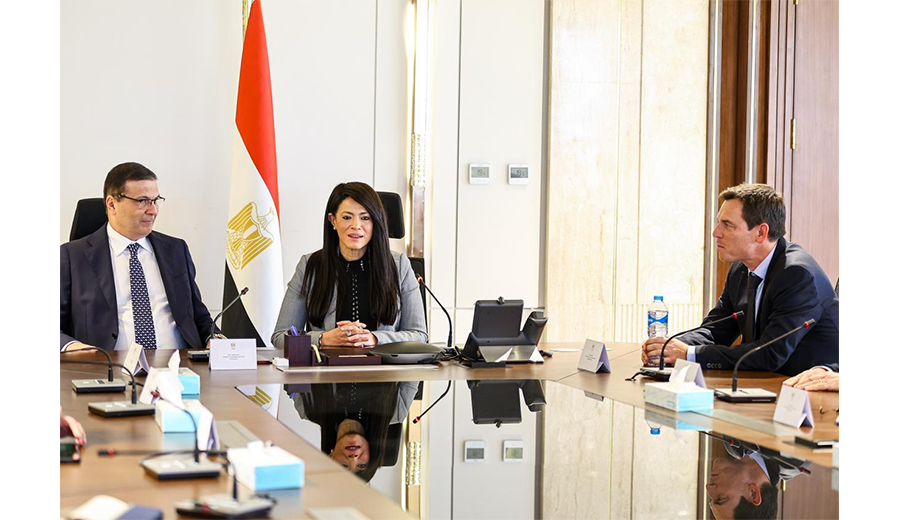Egypt Award for Gov't Excellence launches 1st Phase of training activities for ambassadors of Excellence for the equal opportunities and empowering women award

08 June 2023
Egypt Government Excellence Award in cooperation with the Economic Governance Project funded by USAID and the National Council for Women, launched the activities of the first phase of the training of ambassadors of excellence for the Equal Opportunities and Women Empowerment Award on "Strategic Planning, Gender Equality, and Equal Opportunities", which lasted for two days.
The first stage witnessed the participation of 30 trainees from the Ministries of Communications and Information Technology, Education and Technical Education, Culture, Finance, Tourism and Antiquities, Civil Aviation, and the governorates of Cairo and Giza, in addition to Cairo University and the Sheikhdom of Al-Azhar Al-Sharif.
In this context, H.E. Dr. Hala El-Said, Minister of Planning and Economic Development, said that the launch of the Equal Opportunities and Women Empowerment Award comes in the implementation of H.E. President Abdel Fattah El-Sisi's mandate at the Egyptian Women’s Celebration 2022 and in line with the national strategy for women’s empowerment.
This award aims to promote a positive working environment in government institutions. Appropriate and safe for women and people of determination, and guarantee equal access to opportunities and resources, and services without discrimination for all groups, according to El-Said.
During the opening session of the first training day, Ms. Soha Saeed, Executive Director of the Egypt Government Excellence Award, confirmed that the training comes within the framework of the award management's keenness to spread awareness and build capacities related to institutional discrimination standards and strategic planning for the award for equal opportunities and women's empowerment to provide adequate support to government agencies.
During her speech, Soha Saeed reviewed the rates of participation of various government agencies from ministries, governorates, and universities in the Award for Equal Opportunities and Empowerment of Women in its first edition in the third session of 2022, which witnessed the participation of 71 government agencies out of a total of 85, stressing that the main purpose is not just to obtain the award only. Still, the goal is to change the work culture in government institutions through a mechanism different from traditional mechanisms. This is done by focusing on training, awareness, and positive motivation.
Soha Saeed explained the importance of highlighting positive models to create positive competition among all participants, stressing that excellence is a journey that will not end with victory, but it is a continuous journey, referring to the entities that achieved clear success to qualify for the first three positions in the first edition of the award during the last session in 2022.
The pillars of the training program on the first day included a review of international experiences in the field of equal opportunities and women's empowerment, concepts of equal opportunities and women's empowerment, the constitutional and legal framework for promoting the rights of women and people of determination, the strategic framework for the promotion of women's rights, the main objectives of the axes of the national strategy for the empowerment of Egyptian women 2030, planning Responsive to gender equality and equal opportunities (gender),
The closing session of the first day witnessed the speech of Ms. Nihad Abu Al-Qumsan, senior expert on women’s empowerment and consultant in the economic governance project on “women’s empowerment and equal opportunities” in the field of work and its impact, both at the general level, socially and economically, in a way that contributes to expanding the scope of economic development and benefiting from women’s cadres and available competencies. This reflects positively on institutions' performance through their assumption of senior management positions, in addition to their impact on the family level, as many financial institutions, led by the World Bank, indicate that women’s work contributes to raising the family’s standard of living, which is reflected in the quality of life.
During the second training day, Mr. Ambassador Hisham Badr, General Supervisor of the Egypt Award for Government Excellence, met in an interactive dialogue with the trainees to learn about the aspects of benefiting from the training content and the development achieved by the authorities regarding the file of equal opportunities and empowering women in various sectors.
The second day dealt with strategic planning, gender equality, and equal opportunities. It identified the levels of strategic plans internationally and locally and the complementarity between them. In addition, it presented the criteria and steps for preparing a successful strategic plan.
Dr. Elham Muhammad Shaheen, Assistant Secretary-General of the Islamic Research Academy for Preachers’ Affairs at Al-Azhar University, reviewed the success story of the “Sheikhdom of Al-Azhar Al-Sharif” and how it is obtaining first place in the award for equal opportunities and women’s empowerment 2022, and the most prominent efforts made to reach the honoring platform in light of the qualitative shift that the sheikhdom witnessed under the leadership of His Eminence The Grand Imam, Sheikh Ahmad al-Tayyib.
.









